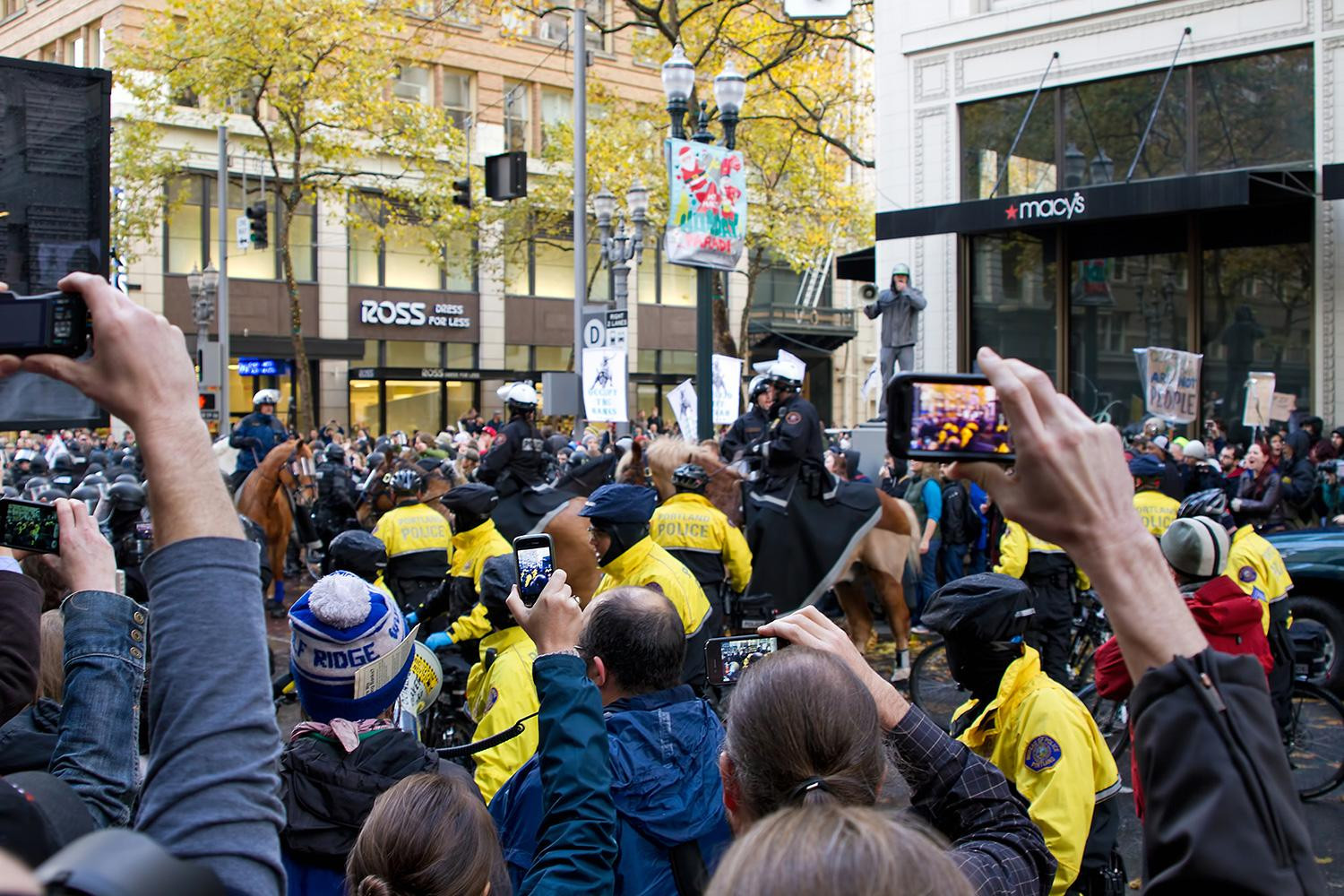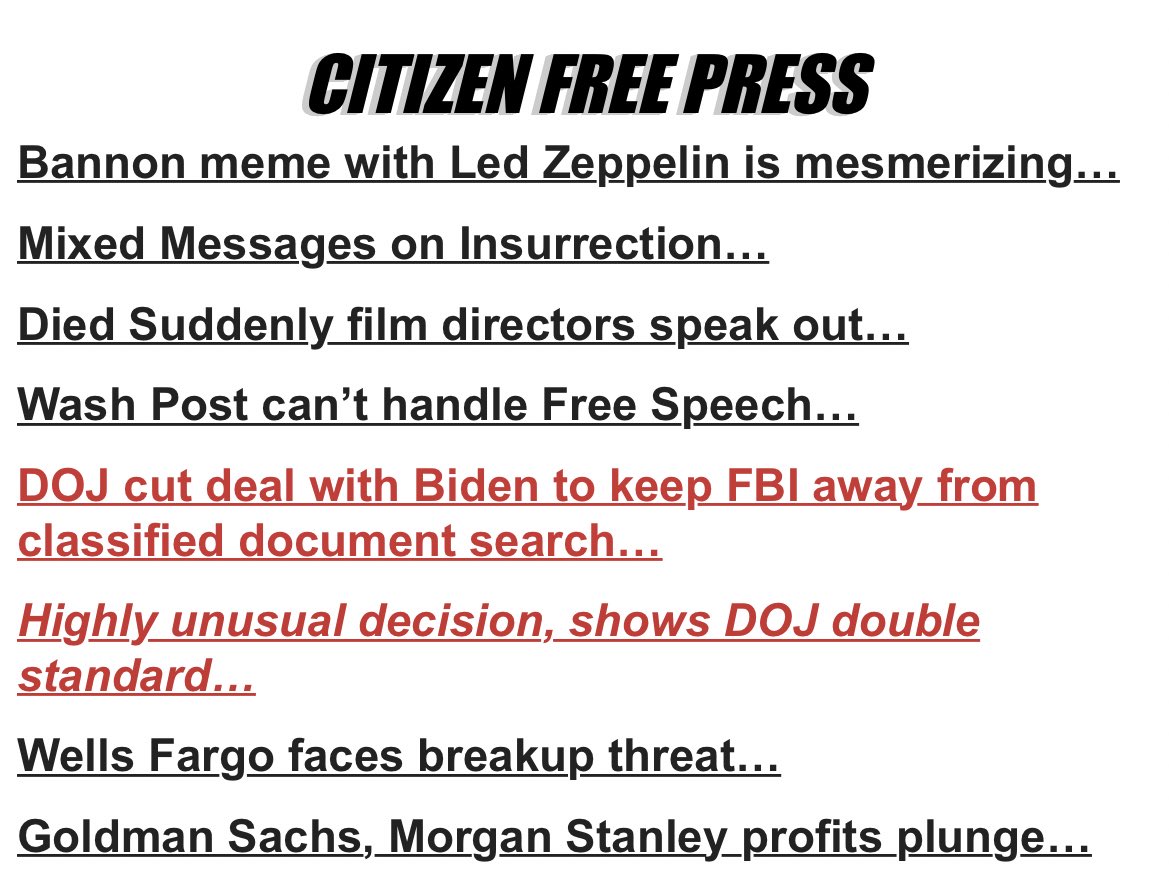In today's digital age, citizen free press bias has become a critical issue shaping how we consume and interpret news. The rise of citizen journalism has democratized the flow of information, allowing individuals to share their perspectives and stories with a global audience. However, this newfound freedom also comes with challenges, particularly concerning bias in reporting. Understanding citizen free press bias is essential for anyone seeking to navigate the complex world of modern media.
The term "citizen free press bias" refers to the inherent or unintentional biases that can occur when individuals, rather than professional journalists, report on events. These biases can stem from personal beliefs, lack of journalistic training, or even the desire to promote a specific agenda. As more people turn to social media and independent platforms for news, recognizing and addressing these biases becomes increasingly important.
This article aims to provide a comprehensive guide to understanding citizen free press bias. By exploring its causes, effects, and potential solutions, we hope to empower readers to critically evaluate the information they encounter daily. Whether you're a journalist, a student, or simply someone interested in media literacy, this article will offer valuable insights into the evolving landscape of citizen journalism.
Read also:Hdhub4u In Hollywood Your Ultimate Guide To Highquality Entertainment
Table of Contents
- What is Citizen Free Press Bias?
- History of Citizen Journalism
- Types of Bias in Citizen Free Press
- Causes of Bias in Citizen Journalism
- Effects on Public Opinion
- How to Identify Bias in Citizen Free Press
- Strategies to Reduce Bias
- The Role of Social Media in Citizen Free Press Bias
- Case Studies: Examples of Bias in Action
- The Future of Citizen Journalism
What is Citizen Free Press Bias?
Citizen free press bias refers to the tendency of individuals who report news without formal journalistic training to present information in a way that reflects their personal beliefs, values, or agendas. Unlike traditional journalism, which often adheres to strict ethical guidelines, citizen journalism operates in a more unregulated environment. This freedom can lead to biased reporting, where facts may be skewed, omitted, or exaggerated to fit a particular narrative.
Understanding Bias in Journalism
Bias in journalism is not a new phenomenon. However, the rise of citizen journalism has amplified this issue due to the sheer volume of content produced and the lack of editorial oversight. Citizen journalists often lack the resources and training to verify information, leading to the spread of misinformation or half-truths.
History of Citizen Journalism
The concept of citizen journalism dates back to the early days of printing, but its modern incarnation emerged with the advent of the internet. Platforms like blogs, social media, and independent news websites have enabled ordinary people to share their perspectives on global events. This democratization of media has empowered voices that were previously marginalized, but it has also introduced new challenges related to bias and credibility.
Evolution of Citizen Journalism
- Early forms of citizen journalism in print media
- Rise of online platforms in the late 20th century
- Impact of social media on news dissemination
Types of Bias in Citizen Free Press
Citizen free press bias can manifest in various forms, each affecting how information is perceived by the audience. Some common types of bias include:
- Selection bias: Choosing stories or facts that align with a particular viewpoint while ignoring others.
- Confirmation bias: Presenting information that confirms pre-existing beliefs while dismissing contradictory evidence.
- Tone bias: Using language or tone that conveys a subjective opinion rather than objective reporting.
Impact of Bias on News Consumption
Bias in citizen free press can lead to a distorted understanding of events, as readers may only be exposed to one side of a story. This can contribute to polarization and undermine trust in media institutions.
Causes of Bias in Citizen Journalism
Several factors contribute to bias in citizen journalism, including:
Read also:Hdhub4u Hindi Your Ultimate Destination For Highquality Movies And Entertainment
- Lack of formal training in journalism ethics and practices
- Personal beliefs and values influencing reporting
- Desire to attract attention or gain followers on social media
Addressing the Root Causes
To reduce bias, citizen journalists can seek out training, collaborate with professional journalists, and adopt best practices in reporting. Additionally, platforms hosting citizen journalism can implement measures to promote transparency and accountability.
Effects on Public Opinion
Citizen free press bias can significantly impact public opinion, shaping how individuals perceive important issues. When biased reporting goes unchecked, it can lead to the spread of misinformation, fueling divisions and mistrust within society.
Case Studies of Public Opinion Shifts
Examining specific instances where citizen journalism influenced public opinion can provide valuable insights into the power and pitfalls of this form of media. For example, the role of social media in shaping narratives during political events highlights the need for critical evaluation of sources.
How to Identify Bias in Citizen Free Press
Identifying bias in citizen free press requires a critical approach to evaluating sources. Readers should look for:
- Use of emotionally charged language
- Selection of facts that support a particular narrative
- Lack of multiple perspectives or counterarguments
Tools for Evaluating Bias
Several tools and resources are available to help readers assess the credibility of citizen journalism. Fact-checking websites and media literacy guides can equip individuals with the skills needed to navigate biased content effectively.
Strategies to Reduce Bias
Reducing bias in citizen free press involves a combination of individual and systemic efforts. Citizen journalists can:
- Adopt ethical guidelines for reporting
- Engage in peer review and feedback processes
- Utilize fact-checking tools to verify information
Collaboration with Traditional Media
Collaborating with traditional media outlets can provide citizen journalists with access to resources and expertise, helping to mitigate bias and improve the quality of reporting.
The Role of Social Media in Citizen Free Press Bias
Social media platforms play a significant role in amplifying citizen free press bias. Algorithms designed to prioritize engaging content can inadvertently promote biased or misleading information. Understanding how these platforms operate is crucial for addressing bias in the digital age.
Platform Responsibility
Social media companies have a responsibility to promote transparency and accountability in the content they host. Implementing policies to flag biased content and promote credible sources can help combat the spread of misinformation.
Case Studies: Examples of Bias in Action
Examining real-world examples of citizen free press bias can provide valuable lessons for both creators and consumers of media. Case studies from recent events highlight the importance of critical thinking and media literacy in navigating the modern media landscape.
Learning from Mistakes
By analyzing past instances of biased reporting, citizen journalists can learn to avoid common pitfalls and improve the quality of their work. This ongoing process of reflection and improvement is essential for the growth of citizen journalism as a credible source of information.
The Future of Citizen Journalism
The future of citizen journalism lies in its ability to adapt to the challenges of bias and credibility. By embracing ethical practices, collaborating with traditional media, and leveraging technology, citizen journalists can play a vital role in shaping the media landscape of tomorrow.
Empowering the Next Generation
Investing in media literacy education and providing resources for aspiring citizen journalists can help ensure that the future of citizen journalism is one of integrity and impact.
Conclusion
Citizen free press bias is a complex issue that requires attention from both creators and consumers of media. By understanding its causes, effects, and potential solutions, we can work towards a more informed and engaged society. We invite you to share your thoughts in the comments below, explore related articles on our site, and continue the conversation about the future of journalism.


